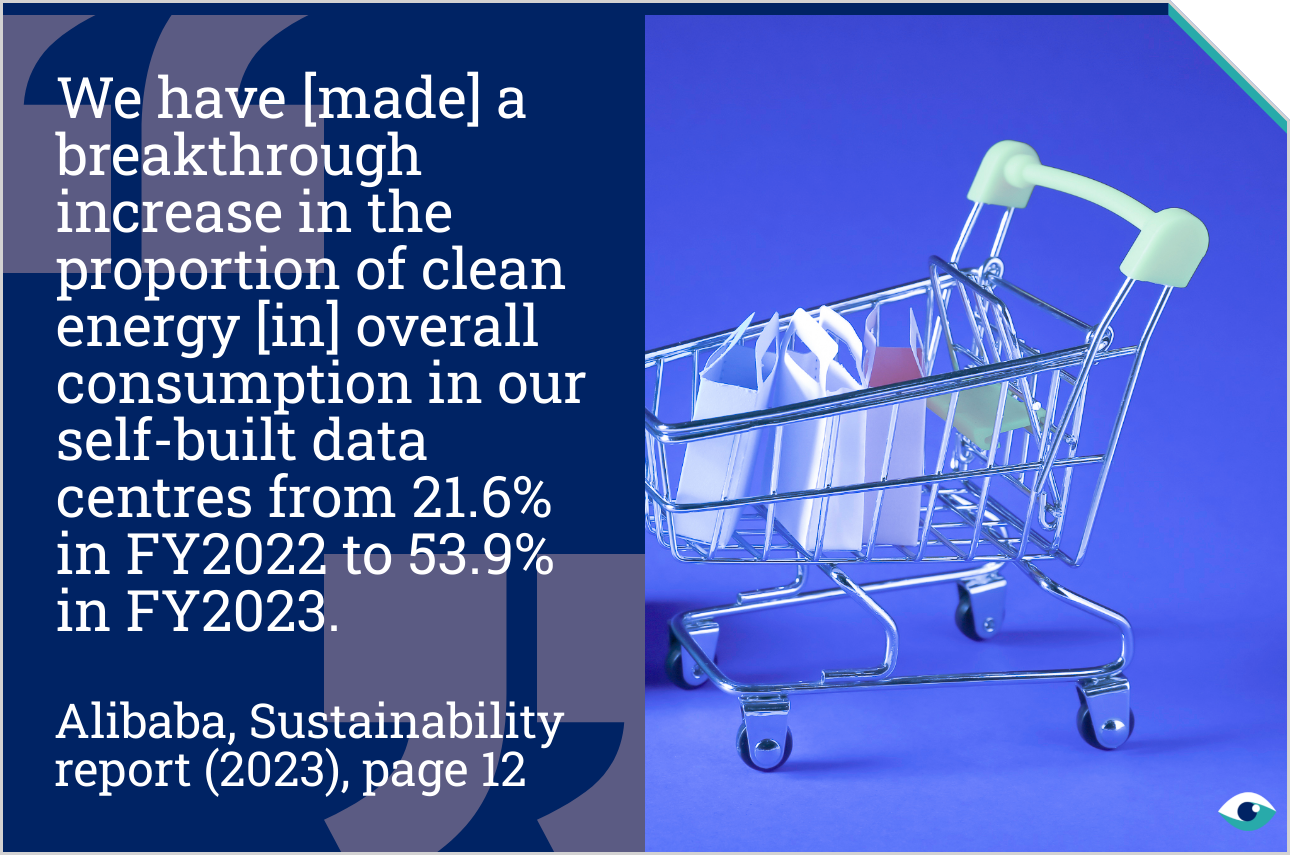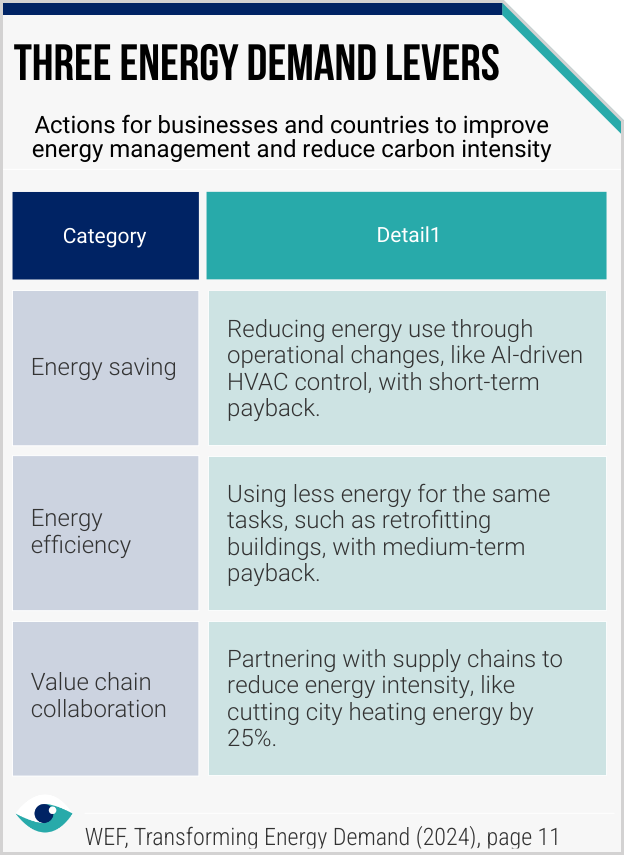Facing global pressure for stricter environmental regulations, the retail industry is at a critical point due to tighter energy efficiency standards. In 2023, the EU's revised Energy Efficiency Directive (EU/2023/1791) mandated zero emissions in buildings by 2030. This forces consumer durables retailers to enhance energy management or risk potential operational disruptions and higher costs, especially in energy-intensive data centres and retail facilities (SASB sector-specific standard for E-commerce). Hence, retailers must prioritise investments in smart energy technologies and increase renewable energy sourcing to meet sustainability targets.

Tightening standards demand energy efficiency measures
Energy efficiency represents a strategic imperative for retailers to meet evolving regulatory requirements and stakeholder expectations
Planet: Environmental impacts
Consumer durables retail
Publication date: 03 Sep 2024
By Engin Göksu
AT A GLANCE
Increasing regulations and incentives drive the urgent need for improved energy management in consumer durables retail operations.
Effective energy management reduces operational costs and aligns with global sustainability targets.
Over time, strategic energy practices will ensure consumer retail competitiveness and compliance with an evolving policy and legal backdrop.
Energy sourcing
Entities in the e-commerce industry increasingly shift to renewable energy sourcing therefore making these alternative energy sources more cost-competitive. For example, Unilever’s electricity utilisation in 2022 was coming 93% from renewable energy sources, showcasing a substantial shift towards sustainable energy sourcing, supported by RE100’s best practices. Any inadequate energy management will expose firms to growing operational costs and potential regulatory penalties considering that the industry relies heavily on energy for data centres and retail facilities.
Operational upgrades
The IEA says that the space heating and cooling in buildings offers potential for substantial energy efficiency by upgrading facilities. In in latest sustainability disclosures, Home Depot significantly reduced its electricity consumption by transitioning to LED lightning. GRI disclosure requirements include total energy used and the percentage of grid electricity coming from renewable energy sources which in turn indicate the operational upgrades made.

Supplier collaboration
Since mandatory building codes are expanding, entities are trying to get suppliers to adopt energy-efficiency practices in non-residential buildings including retail facilities. Dependency on non-renewable energy sources among suppliers poses risks to supply instability and price volatility (e.g. changing geopolitics). For instance, Lowe’s leverages technology and data analytics by engaging with suppliers to improve building performance and reduce energy consumption.

Long-term strategies
The new EU Energy Performance of Buildings Directives requiring zero emissions by 2030 will lead to a significant long-term shift in energy management affecting the retail sector worldwide. Reliance on fossil fuel energy sources is unsustainable based on stricter environmental regulations and stakeholder expectations for sustainable practices. Costco has committed itself to purchasing 80% clean energy by 2030 showing a strategic long-term approach by covering its energy needs sustainably.
FURTHER READING
- GRI 302: Energy 2016 (Global Reporting Initiative)
- Energy Efficiency - 2023 (IEA)
- Transforming energy demand (WEF)
